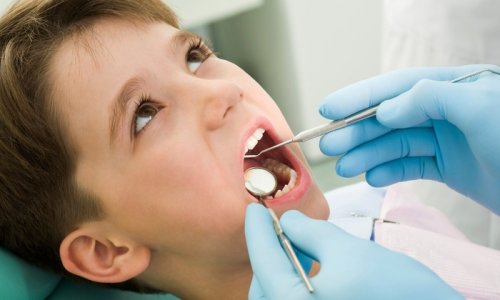How to Care for Your Child's Baby Teeth

Childhood is a stage marked by a number of significant milestones. Teething is one major landmark in a child’s development. Your child’s first set of baby teeth are a symbol of newfound autonomy as they grow older.
Baby teeth, also known as milk teeth, appear during the first three years of life. They don’t stay with us long, however.
When a child turns five or six years old, their baby teeth will begin to fall out as their adult teeth come in. Time for the tooth fairy to come and collect them!
Your child will experience something that all of us have gone through. The transition from baby teeth to adult dentition can go on until your child is ten or eleven years old.
This can be uncomfortable and irritating, but it’s also necessary. Taking good care of baby teeth is essential to avoiding problems later in life.
So, what are the guidelines for caring for children’s baby teeth? Is there anything important that we should know?
How to care for children’s baby teeth
1. Brush their teeth after meals
At the beginning, you’ll have to help them. Little by little, though, your child will learn to brush their teeth all on their own.
It’s highly important for you to set a good example. Take good care of your own dental hygiene and your children will follow your lead.
They should brush their teeth after meals, paying special attention to the edges of their gums.
Even if it takes a little longer, they should brush gently. This helps to strengthen and thoroughly clean their baby teeth.
2. Get an annual dental checkup
A yearly visit to the dentist is essential. Most children won’t have any trouble with their baby teeth, but prevention is the best medicine.
The dentist will be able to talk to your child, give them advice and teach them good habits.
Your child may pay more attention to what the dentist tells them than to their parents. Keeping up with annual checkups also helps dispel any fears about going to the dentist.

3. Eat a healthy diet
A good diet is fundamental to dental health. When our diet lacks certain essential nutrients, many parts of our body suffer the consequences – including our teeth and mouths.
If your child eats a healthy, balance diet, there is nothing to fear.
Teach your child to eat a little bit of everything. They should always try new foods, even if they don’t necessarily like them.
When they’re older, they’ll be able to make their own choices. But for now, you’re the boss!
4. Avoid sugary food and drinks
Like the vast majority of children, your child probably loves all things sweet. But try to keep candies and chocolate to a minimum.
Keep sweet treats for special occasions, or once a week, under your supervision.
The same is true for soda. Get your child used to drinking water or sugar-free juice.
Sugar has addictive qualities, and consuming too much during childhood can have effects that they’ll regret later in life.
If your child has a morning or afternoon snack, give them a piece of their favorite fruit.
5. Talk to your child
Talking to your child about their health is essential, and is something that we often overlook.
If we explain why they need to take care of their teeth, they may well understand on their own that certain cavity-causing foods are best avoided.

As parents, we sometimes underestimate our children’s capacity for understanding. Most of the time, children are more aware than we might think.
Give your child a vote of confidence. Take the chance to talk to them like a grown-up.
Picking up good habits doesn’t need to be difficult. There are many healthy and appealing alternatives to candy or chocolate.
It’s just a matter of getting to know them. Homemade fruit smoothies, for example, are packed with nutrients and are usually a hit with kids.
Remember that good dental health will help your child avoid problems in the future. The earlier they start, the easier it will be to form good habits.
With your support and encouragement, there isn’t much that they can’t learn.
This text is provided for informational purposes only and does not replace consultation with a professional. If in doubt, consult your specialist.
